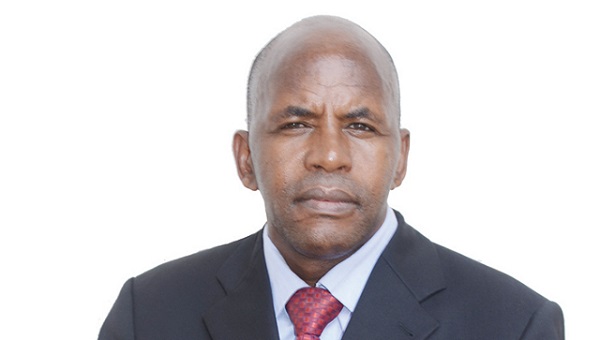
“Poverty in Uganda can only be fought by increasing crop and animal productivity,” Munyambonera says, “Agriculture productivity is at 20 per cent of its potential. It is too low to eliminate poverty.”
According to EPRC data, fertiliser usage stands at 5 kilograms per hectare compared to the recommended 60 kilograms.
There is also little investment in storage facilities, which leads to losses for farmers. President Yoweri Museveni has said that Uganda currently has a maize glut of 4 million tonnes.
He says that Ugandans harvested 5 million tonnes of maize but the country’s prisons, armed forces, schools and the occasional household that consumes maize meal could only absorb 1 million tonnes, leaving the rest for mainly export.
Yet to effectively export surplus crops, Dr Munyambonera says, proper storage facilities and a regulated marketing system are necessary so that farmers can wait out the glut.
But instead of these investments, Uganda has provided seeds in an environment that is delivering very little returns. So far the ministry of agriculture has distributed 400 million tea seedlings which should now cover 62,000 hectares of land. Instead Uganda only has 16,000 hectares under tea production.
Without the appropriate investments, agriculture productivity has been poor making it impossible for Uganda to benefit from $40 billion in foreign exchange that Africa sends abroad to import food.
With investment in improving agriculture productivity, experts say, Uganda would benefit from increased income at the farm and limited industrialisation processes would start to take off.
Vietnam, one of the Asian tigers is highlighted to show how investment in agriculture now would pay off much better than the current investment in infrastructure expected to start paying off ten or so years from now. In the 1960s, Vietnam was producing 1 million bags of coffee, which was lower than Uganda’s 3 million bags.
Vietnam’s tea production has since increased to 32 million bags, which earns the country $3 billion. In comparison, Uganda last year exported 4 million bags of coffee making $490 million according to data from Bank of Uganda.
Were Uganda’s coffee production to expand to the levels of Vietnam, Dr Munyambonera says the country would not only benefit from the increased income for farmers but there would also be more jobs from the processing factories. With about 400 coffee processing factories instead of the 35 licensed processors that currently exist, some Ugandans now stuck on the land, contributing very little to productivity, would get jobs.
“The Asian Tigers first looked at their domestic economy by starting with medium agro processing,” says Dr Munyambonera.
An increase in jobs would increase money available for Ugandans to spend, leading to more local investors, while at the same time making the market attractive for international investors. Currently the UNHS shows that the average monthly expenditure for a Ugandan household is just Ush351, 600 ($96.3).
This amount is too little to attract foreign investors, experts say. Yet according to Kasingye Kyamugambi the Coordinator of the Standard Gauge Railway (SGR) project, Uganda is investing heavily in the road, railway and electricity infrastructure to attract investors. The same view is held by officials at the Electricity Regulatory Authority who have argued that it is okay for Ugandans to buy electricity expensively. According to these officials this is necessary for Uganda to invest in electricity which will attract investors.
But Dr Munyambonera says this policy is ill advised as foreign investors are attracted by several other things other than availability of infrastructure. He highlights skilled labour and market availability which Uganda doesn’t have at the moment.
 The Independent Uganda: You get the Truth we Pay the Price
The Independent Uganda: You get the Truth we Pay the Price



